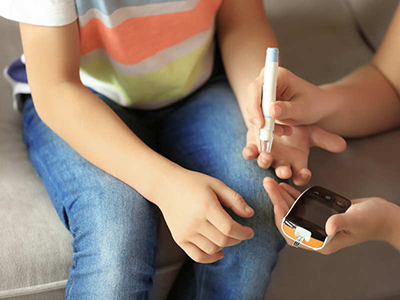
7. Drug & Device Updates |
FDA Approves Victoza for Children 10 Years and Older

![]() The US FDA has approved Victoza (liraglutide) injection to treat type 2 diabetes in children 10 years and older. Dosage of Victoza in children should start at 0.6 mg daily for at least one week. The manufacturer's prescribing information indicates that if additional glycemic control is required, the dose should be increased to 1.2 mg daily, and then to 1.8 mg daily after at least one week of treatment with the 1.2-mg daily dose if additional control is still required.
The US FDA has approved Victoza (liraglutide) injection to treat type 2 diabetes in children 10 years and older. Dosage of Victoza in children should start at 0.6 mg daily for at least one week. The manufacturer's prescribing information indicates that if additional glycemic control is required, the dose should be increased to 1.2 mg daily, and then to 1.8 mg daily after at least one week of treatment with the 1.2-mg daily dose if additional control is still required.
![]() Approval of Victoza in children aged 10 years and older was based on several placebo-controlled trials in adults and one placebo-controlled trial in children. In the trial of 134 children aged 10 years and older, at 26-week follow-up, HbA1c levels reduced to less than 7 percent for approximately 64 percent of children treated with Victoza compared with 37 percent of children treated with placebo. Researchers found similar results when patients were also taking insulin simultaneously.
Approval of Victoza in children aged 10 years and older was based on several placebo-controlled trials in adults and one placebo-controlled trial in children. In the trial of 134 children aged 10 years and older, at 26-week follow-up, HbA1c levels reduced to less than 7 percent for approximately 64 percent of children treated with Victoza compared with 37 percent of children treated with placebo. Researchers found similar results when patients were also taking insulin simultaneously.

![]() The Teplizumab Prevention Trial has given validity to the concept that immune therapy can delay the diagnosis of type 1 diabetes (T1D), according to findings presented at the American Diabetes Association’s 79th Scientific Sessions in San Francisco.
The Teplizumab Prevention Trial has given validity to the concept that immune therapy can delay the diagnosis of type 1 diabetes (T1D), according to findings presented at the American Diabetes Association’s 79th Scientific Sessions in San Francisco.
![]() Family members of someone with T1D have a 15 times greater risk of developing T1D than individuals from the general population. This study enrolled relatives of patients with T1D based upon these findings suggestive of high-risk. The participants were randomly assigned to treatment with teplizumab (an FcR non-binding humanized monoclonal anti-CD3 antibody) or placebo.
Family members of someone with T1D have a 15 times greater risk of developing T1D than individuals from the general population. This study enrolled relatives of patients with T1D based upon these findings suggestive of high-risk. The participants were randomly assigned to treatment with teplizumab (an FcR non-binding humanized monoclonal anti-CD3 antibody) or placebo.
![]() Researchers conducted the double-masked, placebo-controlled, randomized trial of 76 participants, 55 of whom were younger than age 18. Using the database from TrialNet’s Pathway to Prevention study, researchers identified relatives of people with T1D, and those with multiple antibodies and abnormal glucose tolerance were eligible for assignment to the Teplizumab Prevention Trial. Participants received either teplizumab or a placebo over 14-days with daily, 30-minute intravenous drug infusions at TrialNet Clinical Centers. Researchers followed participants until 42 of the enrolled participants were diagnosed with T1D.
Researchers conducted the double-masked, placebo-controlled, randomized trial of 76 participants, 55 of whom were younger than age 18. Using the database from TrialNet’s Pathway to Prevention study, researchers identified relatives of people with T1D, and those with multiple antibodies and abnormal glucose tolerance were eligible for assignment to the Teplizumab Prevention Trial. Participants received either teplizumab or a placebo over 14-days with daily, 30-minute intravenous drug infusions at TrialNet Clinical Centers. Researchers followed participants until 42 of the enrolled participants were diagnosed with T1D.
![]() Overall, the teplizumab treatment group within this study experienced an average two-year delay in the onset of T1D compared to the placebo group. The teplizumab-treated group had a reduced annualized rate of diabetes of 14.9% compared to 35.9% within the placebo group. Thus the results were found to be highly statistically significant and with great clinical relevance.
Overall, the teplizumab treatment group within this study experienced an average two-year delay in the onset of T1D compared to the placebo group. The teplizumab-treated group had a reduced annualized rate of diabetes of 14.9% compared to 35.9% within the placebo group. Thus the results were found to be highly statistically significant and with great clinical relevance.
For enquiries info@jothydev.net.
Please visit: jothydev.net | research.jothydev.com | diabscreenkerala.net | jothydev.com/newsletter
